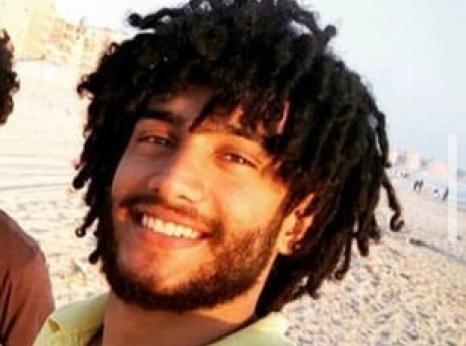Egypt: Youth Unjustly Jailed In Relation To Protest

Security forces arrested Badr Mohamed on 16 August 2013 in connection to the Ramsis Square protests, when he was 17 years old. Amnesty International documented the excessive force used by security forces against protesters and bystanders during these protests, resulting in the death of 97 protesters. According to information gathered by Amnesty International, Badr Mohamed was in the vicinity of Ramsis Square when violence erupted, and he ran to the nearby Al-Fath mosque for safety. The security forces then raided the mosque, where tens of protesters and bystanders were trapped, including many who were injured, and arrested Badr Mohamed and many others. According to the casefile, reviewed by Amnesty International, Badr Mohamed was named as a suspect in case 8615/2013 and interrogated before Al-Azbakeya prosecution on 19 August 2013 without a lawyer present. Badr Mohamed was arbitrarily detained with adults in Wadi al-Natron prison and transferred to a juvenile detention facility three months later, where he remained until his release on bail in November 2013. Under international law and standards, the arrest, detention or imprisonment of children should only be used as a measure of last resort; must be subject to regular review and be for the shortest appropriate duration; and alternatives to detention should be used whenever possible. According to his relatives, after his release, he has been suffering from post-traumatic stress disorder and has been living in hiding fearing re-arrest. On 18 August 2017, Badr Mohamed was sentenced to five years in prison in his absence on charges of murder of police officers, attempted murder, “destroying public property”, “protesting without authorization”, “attacking the security forces” and “hindering the work of national institutions”, among other charges. He was tried in a grossly unfair mass trial that included 494 defendants, 43 of whom were sentenced to life imprisonment, while 399 were sentenced to between five and 15 years in prison, including eight children. The verdict, examined by Amnesty International, heavily relied on investigations and eyewitness accounts by security forces and other government officials.
Security forces arrested Badr Mohammed in front of his wife, an Austrian national, during a Ramadan breaking of the fast (Iftar) on 11 May 2020. He was referred to re-trial before a terrorism circuit of a Cairo Criminal Court in July 2020. According to lawyers, new defendants were arrested and/or added to the case every month, which delayed court proceedings considerably. In mid-2022, the presiding judge dismissed the lawyers’ requests to call witnesses or re-examine evidence. The retrial initially took place in a courtroom inside Tora Prison Complex, and then in a courtroom inside the Badr Prison Complex. On 12 January 2023, Badr Mohamed was convicted of “participating in an illegal gathering”, "displaying force associated with the crime of premediated murder”, “attempted murder“, “destruction of public property”, “attempted use of explosives and possession of firearms and knives”, among other charges and sentence to five years in prison. Similarly, to the original verdict issued in August 2017, the presiding judge in the retrial relied on secret reports by security forces, to which defendants and their lawyers don’t have access, and witness testimonies from police and other security or government officials. Lawyers raised concerns that no material evidence was presented in relation to Badr Mohamed’s alleged participation in protests or violent acts. Amnesty International learned from Badr Mohamed’s lawyers that the court dismissed statements by defence witnesses that he did not take part in the protests. Badr Mohamed’s trial and retrial took place before dedicated judicial chambers, named terrorism circuits, established in 2014 to try individuals involved in anti-government protests. These chambers have sentenced hundreds of individuals to death, life imprisonment and prolonged prison terms after grossly unfair mass trials. The establishment of these chambers was one of the measures taken by the Egyptian authorities since 2013 to undermine the independence of the judiciary, in effect transforming courts into tools of repression against actual or perceived critics of the government. Despite the reactivation of the Presidential Pardons Committee in April 2022 and the launch of the National Dialogue in May 2023, the Egyptian authorities continue to arrest real or perceived critics, while thousands remain arbitrarily detained solely for exercising their human rights, following grossly unfair trials or without legal basis.
Since February 2023, concerns about inhumane detention conditions in the Badr Prison Complex have increased amid leaked letters by prisoners indicating rampant torture and other ill-treatment, including deliberate denial of healthcare, exposure to extreme cold, and camera surveillance and bombardment with bright lights 24 hours a day. Prisoner letters paint a frightening picture of starving detainees held in isolation, whose despair at the injustices suffered for years has led some to attempt suicide and others to go on hunger strike. During a detention renewal hearing, held online on 13 March 2023, prisoners held in Badr 3 complained about being stripped naked and beaten.